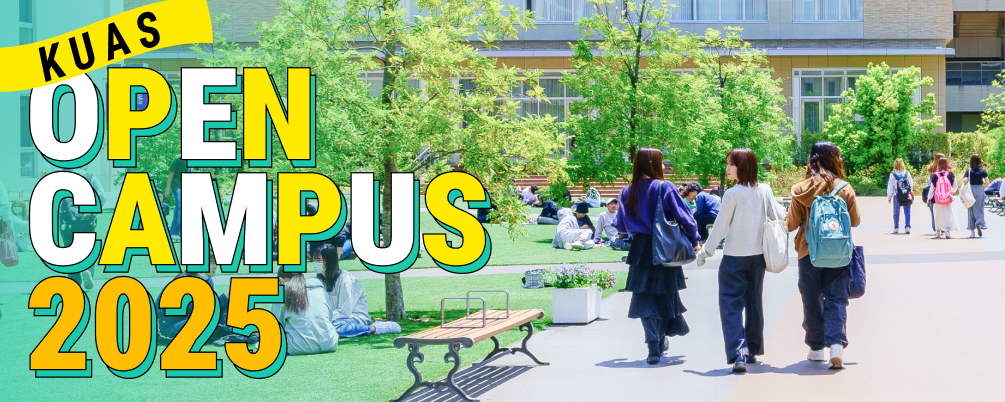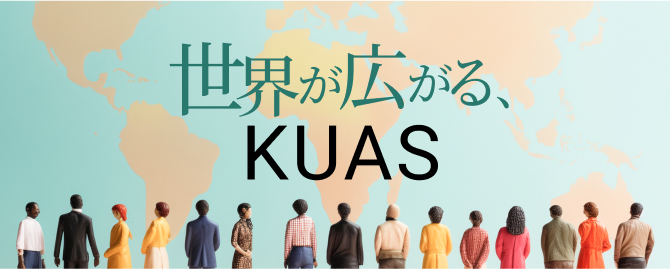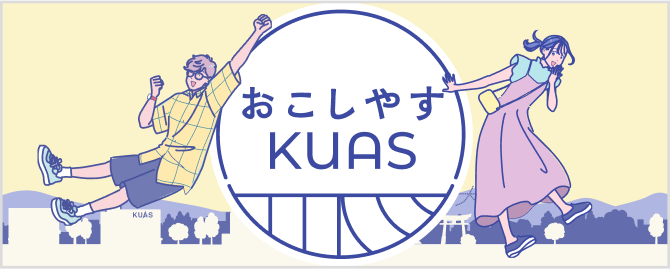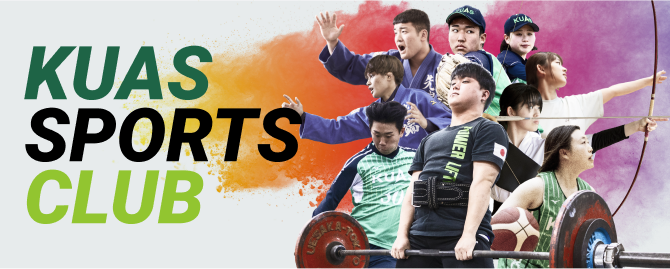電子ジャーナル
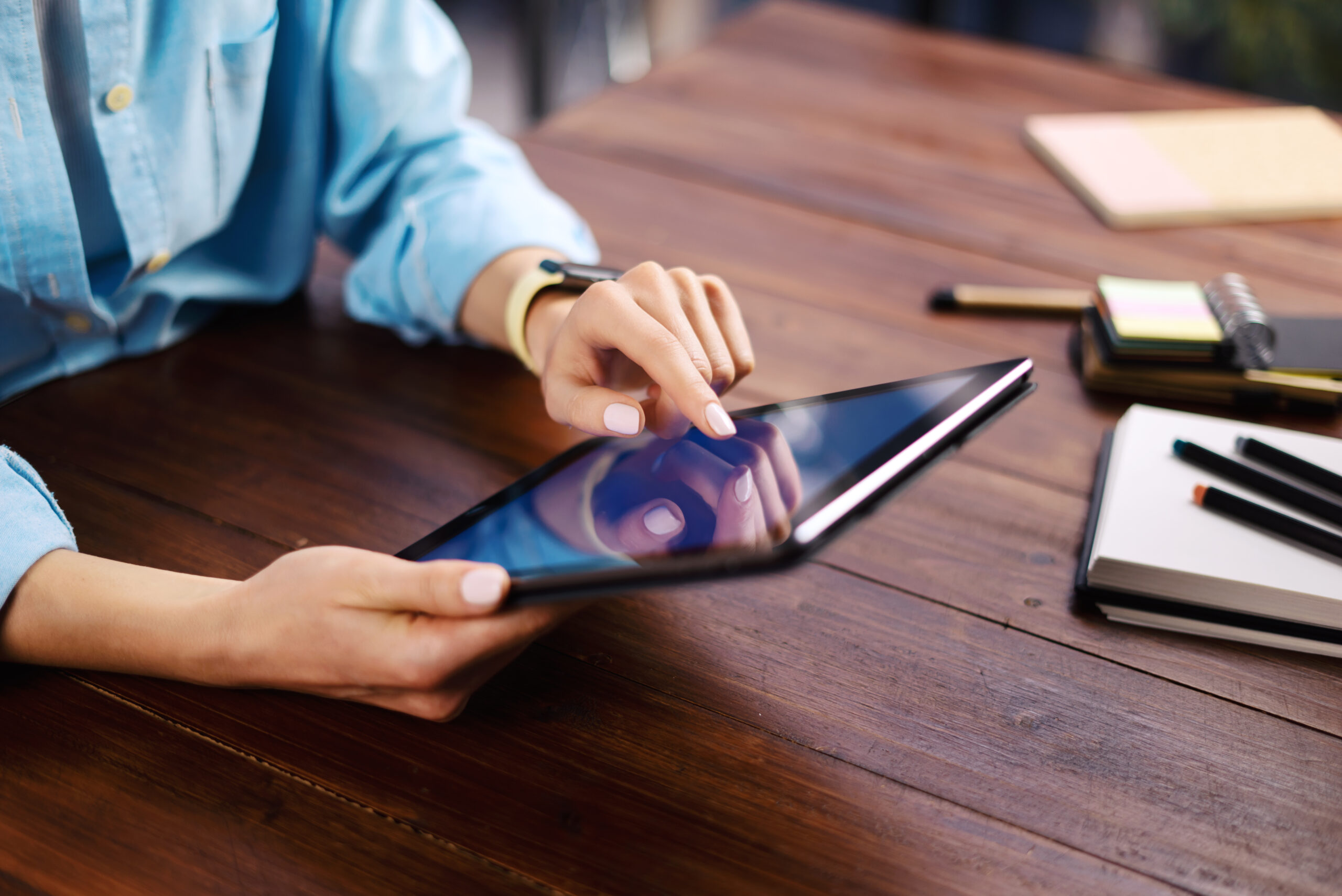
本学に在籍する学部生・大学院生・教職員は電子ジャーナル(インターネット環境下で読むことができる学術雑誌)をご利用いただけます。初めてご利用される方は必ず利用規定をご覧ください。ご利用にあたり、ご不明な点などございましたら、カウンターまでお問い合わせください。
洋雑誌
ご覧になりたい電子ジャーナルの頭文字を下記より選択してください。下記の一覧から閲覧できるフルテキストは出版社が提供する範囲です。
亀岡
亀岡キャンパスでのみ利用可能
太秦
太秦キャンパスでのみ利用可能
A
ACS Food Science & Technology NEW
アメリカ化学会が発行する食品科学分野の学術誌
アメリカ人類学協会発行の人類学分野で最も権威ある学術雑誌
American Economic Journal: Applied Economics
アメリカ経済学会発行の経済学分野のトップジャーナル
American Economic Journal: Economic Policy
アメリカ経済学会発行の経済政策に関する質の高い学術論文を掲載
American Economic Journal: Macroeconomics
アメリカ経済学会発行の経済成長研究に焦点を当てた学術雑誌
American Economic Journal: Papers and Proceedings
「アメリカン・エコノミック・レビュー」の議事録(Vol.108~)
American Economic Journal: Microeconomics
ミクロ経済学の分野における優れた研究を掲載する学術雑誌
American economic review(VOLUME89~)
アメリカ経済学会発行の経済学において最も高名な学術雑誌
American economic review:Insights
アメリカ経済学会発行の幅広い経済学トピックに関する論文を掲載
American Journal of International Law(Vol:111~)
アメリカ国際法学会発行の国際法分野における学術雑誌
シカゴ大学出版局が発行する社会学の主要な学術雑誌
American Journal of Speech-Language Pathology
言語聴覚士の分野における最新の研究を掲載する学術誌
アメリカ社会学会発行の社会学分野で権威ある主要な学術雑誌
Annual review of clinical psychology
臨床心理学の分野における重要な学術雑誌
心理学分野における年次レビュー(総説)ジャーナル
社会学分野の各研究テーマについて批判的な文献レビューを掲載
Applied and environmental microbiology
微生物学における応用分野と環境分野を網羅した学術誌
B
生化学・分子生物学分野における研究論文を掲載する専門誌
Biological & pharmaceutical bulletin
薬学および健康科学に関する英文の国際学術誌
Biological conservation(Volume 240 まで)
生物多様性保全、生態学分野に関する研究論文を掲載する専門誌
生物が示す生命現象に関連する事柄を化学的に解析した論文を掲載
イギリスの社会学分野における主要な学術雑誌
C
The Canadian journal of economics
カナダ経済学会が発行する、カナダの主要な学術経済学専門誌
ライフサイエンス分野における世界最高峰の学術雑誌
化学と生物学の境界領域を扱う国際的な学術雑誌
Chemical & pharmaceutical bulletin
日本薬学会が発行する国際的な学術論文誌
児童発達に関する最新の研究論文、エッセイ、レビューなどを掲載する機関誌
Child development perspectives
現代の発達科学とその応用に関わるあらゆる分野を網羅した査読付き学術雑誌
言語聴覚障害の言語的・音韻論的側面を扱う学術雑誌
国際社会学連合発行の社会学分野の最新の研究動向を広く紹介する学術誌
D
デザインの歴史、理論、批評に焦点を当てた査読付き学術雑誌
嚥下障害に関する国際的学術雑誌
E
進化生態学、個体群生態学、生理生態学などを掲載する科学雑誌
Econometrica : journal of the Econometric Society
計量経済学会発行の経済学の学術雑誌
Economic Inquiry
計量経済学など、経済学の幅広い分野の研究を掲載する学術論文誌
Ethnomusicology: Journal of Society for Ethnomusicology
イリノイ大学出版局発行の民族音楽学の分野における主要な学術誌
European Journal of Social Psychology
社会心理学分野の研究を掲載する査読付きの国際的な学術雑誌
社会学の独創的な研究論文を掲載する学術雑誌
実験経済学に関する旗艦ジャーナル
I
定量的経済学を扱う研究ジャーナル
Elsevierが出版する看護学に関する国際的な学術雑誌
国際看護師協会発行の看護学分野の学術雑誌
スポーツ社会学、文化研究、地理学、メディア研究などを扱う査読付きの学術誌
社会学の広範な分野をカバーする国際社会学会の公式ジャーナル
J
Journal of Agricultural and Food Chemistry
アメリカ化学会発行の農業化学・食品化学分野の国際的な学術雑誌
Journal of the American Chemical Society
アメリカ化学会発行の化学分野で最も権威のある国際的な学術雑誌
アメリカ民俗学会の公式学術雑誌
Journal of Applied Econometrics
応用経済学の分野で高品質な論文を掲載する国際的な学術雑誌
Journal of accounting research(Vol.58まで)
会計学分野で影響力の大きい査読付き学術雑誌
The journal of biological chemistry(OpenAccess)
生化学および分子生物学分野の科学ジャーナル
ビジネス研究を対象とした主要な学術雑誌
ケミカルエコロジーに関する査読付き科学学術雑誌
Journal of communication disorders
コミュニケーション障害に関連する研究論文を掲載する学術雑誌
消費者行動の心理的側面に関する研究を扱う査読付きの学術雑誌
イギリスのデザイン史学会発行のデザイン史の学術雑誌
Journal of economic literature(VOLUME37~)
アメリカ経済学会発行の査読付きの学術雑誌
Journal of economic perspectives
経済学の研究成果を広く伝えることを目的とした経済学雑誌
米国ファイナンス学会発行のファイナンス分野で最も権威ある学術雑誌
民俗学・民族音楽学の分野における理論と研究成果を掲載する学術雑誌
食品科学技術分野における査読付きの主要な科学雑誌
Journal of Food Science Education
食品科学における教育手法、学習評価などの研究論文を掲載する科学雑誌
米国マーケティング協会発行のマーケティング分野における最高峰の学術雑誌
マネジメント分野における権威ある査読付き学術雑誌
経営学分野における世界的に権威ある査読付き学術雑誌
Journal of money, credit and banking
マネー、信用、銀行業務、金融政策などを扱う主要な査読付き学術雑誌
アメリカ化学会発行の天然物研究分野における論文を掲載する学術誌
看護研究を扱う査読付き学術雑誌
パーソナリティ心理学を扱う査読付き学術雑誌
Journal of speech, language & hearing reserch
アメリカ言語聴覚学会発行の言語聴覚分野における査読付きの学術雑誌
Journal of Sports Medicine and Physical Fitness
スポーツ医学と身体能力に関する研究を扱う査読付き科学雑誌
M
マクロ経済学全般をカバーする査読付きの学術雑誌
経営学研究において影響力の大きい論文を掲載する学術雑誌
微生物学における研究論文を掲載する学術雑誌
Molecular and Cellular Biology
生命科学分野における主要な学術専門雑誌
Monographs of the Society for Research in Child Development
児童発達研究協会発行の児童心理学、発達科学を扱う学術専門雑誌
N
自然科学および科学技術全般を扱う最も権威のある学術雑誌
『Nature』に掲載の注目記事を日本語で紹介するジャーナル
植物科学分野における国際的に権威のある学術雑誌
New Technology, Work and Employment
新しいテクノロジーが仕事や雇用に与える影響を分析した学術雑誌
New York University law review
ニューヨーク大学ロースクール発行の法学学術雑誌
O
Oxford bulletin of economics and statistics
応用経済学、特に経済統計学や計量経済学の分野を扱う査読付きの学術雑誌
P
太秦
イギリスの学術的な歴史ジャーナル
植物科学分野における国際的な査読付き学術雑誌
バイオテクノロジーの幅広い研究分野を扱う学術ジャーナル
植物分子生物学の分野における代表的な科学学術雑誌
実験生物学会発行の植物科学分野における学術雑誌
植物生理学という学問分野、およびその分野における主要な学術雑誌
Proceedings of the National Academy of Sciences
米国科学アカデミー発行の世界的に権威のある総合科学学術雑誌
Psychology of Sport and Exercise(Vol.40~)
スポーツ心理学および運動心理学の分野を専門とする学術雑誌
Q
Quantitative Economics
計量経済学や理論経済学の実証研究に関する論文を掲載する学術雑誌
R
ミクロ経済学、マクロ経済学、ゲーム理論など経済学分野の主要な学術雑誌
S
Science: American Association for Advancement of Sciences
最先端の科学研究論文、解説記事などを掲載する権威ある週刊誌
英国で最も古い社会学系の学術誌
スポーツ社会学分野の査読付き学術雑誌
T
Theoretical Economics
経済学に関する理論的論文を掲載する査読付きの学術雑誌
U
University of Chicago law review
アメリカのシカゴ大学ロースクールが発行する法律分野の学術雑誌
University of Miami business law review
マイアミ大学ロースクール発行のビジネス法に特化した学術雑誌
University of pennsylvania law review
アメリカ法学界で高い評価を受ける法学学術雑誌
W
国際経済学に関する理論や実証研究を扱う査読付きの学術雑誌
World Views on Evidence-based Nursing(Vol.E6からVol.17まで)
エビデンスに基づく看護に関する世界中の専門家らの知見を取り上げた雑誌
和雑誌
ジャーナルによってフルテキストの閲覧可能範囲が異なります。詳細は図書館本館までお問い合わせください。
経済・金融・情報関連
| 雑誌名 | 出版社名 | ISSN |
| 参考書誌研究 | 国立国会図書館主題情報部/日本図書館協会 | 0385-3306 |
| 情報管理(Information & documentation) | 独立行政法人 科学技術振興機構 | 0021-7298 |
| 財政金融統計月報 | 財務総合政策研究所/全国官報販売協同組合 | 0912-8042 |
自然・環境関連
| 雑誌名 | 出版社名 | ISSN |
| 日本応用動物昆虫学会誌 | 日本応用動物昆虫学会 | 0021-4914 |
| 有機合成化学協会誌 | 社団法人 有機合成化学協会 | 0037-9980 |
| 日本森林学会誌 | 日本森林学会 | 1349-8509 |
| 水環境学会誌(Journal of Japan Society on Water Environment) | 日本水環境学会 | 0916-8958 |
| 水文・水資源学会誌 | 水文・水資源学会 | 0916-8958 |
| 陸水學雜誌 | 日本陸水學會 | 0021-5104 |
| 人文地理(Human geography) | 人文地理学会 | 0018-7216 |
医療関連
| 雑誌名 | 出版社名 | ISSN |
| 日本がん看護学会誌 | 日本がん看護学会 | 0914-6423 |
| 総合リハビリテーション | 医学書院 | 0386-9822 |
| リハビリテーション医学 | 日本リハビリテーション医学会/医学書院 | 1881-3526 |
| 日本看護医療学会雑誌 | 日本看護医療学会 | 1345-2606 |
| 日本看護科学会誌 | 日本看護科学学会/医学書院 | 0287-5330 |
| 日本看護研究学会雑誌 | 日本看護研究学会 | 0285-9262 |
| 日本看護診断学会誌(看護診断) | 日本看護診断学会/医学書院 | 1341-3007 |
| 日本看護倫理学会誌 | 日本看護倫理学会/医学書院 | 1883-244X |
| 日本腎不全看護学会誌 | 日本腎不全看護学会/医学書院 | 1344-7327 |
| 日本糖尿病教育・看護学会誌 | 日本糖尿病教育・看護学会/医学書院 | 1342-8497 |
| 言語聴覚研究 | 日本言語聴覚士協会/医学書院 | 1349-5828 |
| 呼吸と環境 | 医学書院 | 0452-3458 |
| 呼吸器ジャーナル | 医学書院 | 2432-3276 |
| 公衆衛生 | 医学書院 | 0368-5187 |
| 日本災害看護学会誌 | 日本災害看護学会 | 1345-0204 |
| 作業療法 | 協同医書出版社 | 0289-4920 |
| 作業療法ジャーナル | 三輪書店 | 0915-1354 |
| 循環器ジャーナル | 医学書院 | 2432-3292 |
| 神経研究の進歩 | 医学書院 | 0001-8724 |
| 精神医学 | 医学書院 | 0488-1281 |
| Brain and Nerve 脳と神経 | 医学書院 | 0006-8969 |
| BRAIN and NERVE-神経研究の進歩 | 医学書院 | 1881-6096 |
| 理学療法ジャーナル | 医学書院 | 0915-0552 |
| 理学療法と作業療法 | 医学書院 | 0386-9849 |
| medicina | 医学書院 | 0025-7699 |
| 生体の科学 | 医学書院 | 0370-9531 |
電子ジャーナルの利用規定
出版社ごとにライセンス契約を締結しています。各契約ごとに「利用規定」が定められており、規定に抵触した場合、本学全体のアクセスがすべて停止されることがあります。Webページの閲覧やダウンロードやプリントアウト行為の情報は全て出版社(Web管理者)で管理されており、規約に違反した利用者は利用が停止されてしまいます(法人の場合は所属機関全体で利用停止)。一人が利用規約違反をすると大学全体の利用が停止しますので、必ず以下の禁止事項をご確認の上、ご利用ください。
【禁止事項】
- ダウンロード支援ソフトやファイル取得ツールなどを利用して文書や画像などを自動的、または組織的にダウンロードしたり、プリントアウトをしたりすること
- 1タイトルあたり、「印刷/保存」画面上に表示されているページ数の上限を超えてダウンロードすること
- 一度に一冊分のデータすべてをダウンロードしたり、プリントアウトを行うこと
- 個人利用以外の目的で営利・非営利を問わず、複製・再配布すること
- 著作権者の許可を得ずに著作物を複製、送信(インターネットへのアップロードなど)、改変、販売、譲渡する著作権を侵害する行為
これらの禁止事項を守ってご利用ください。

